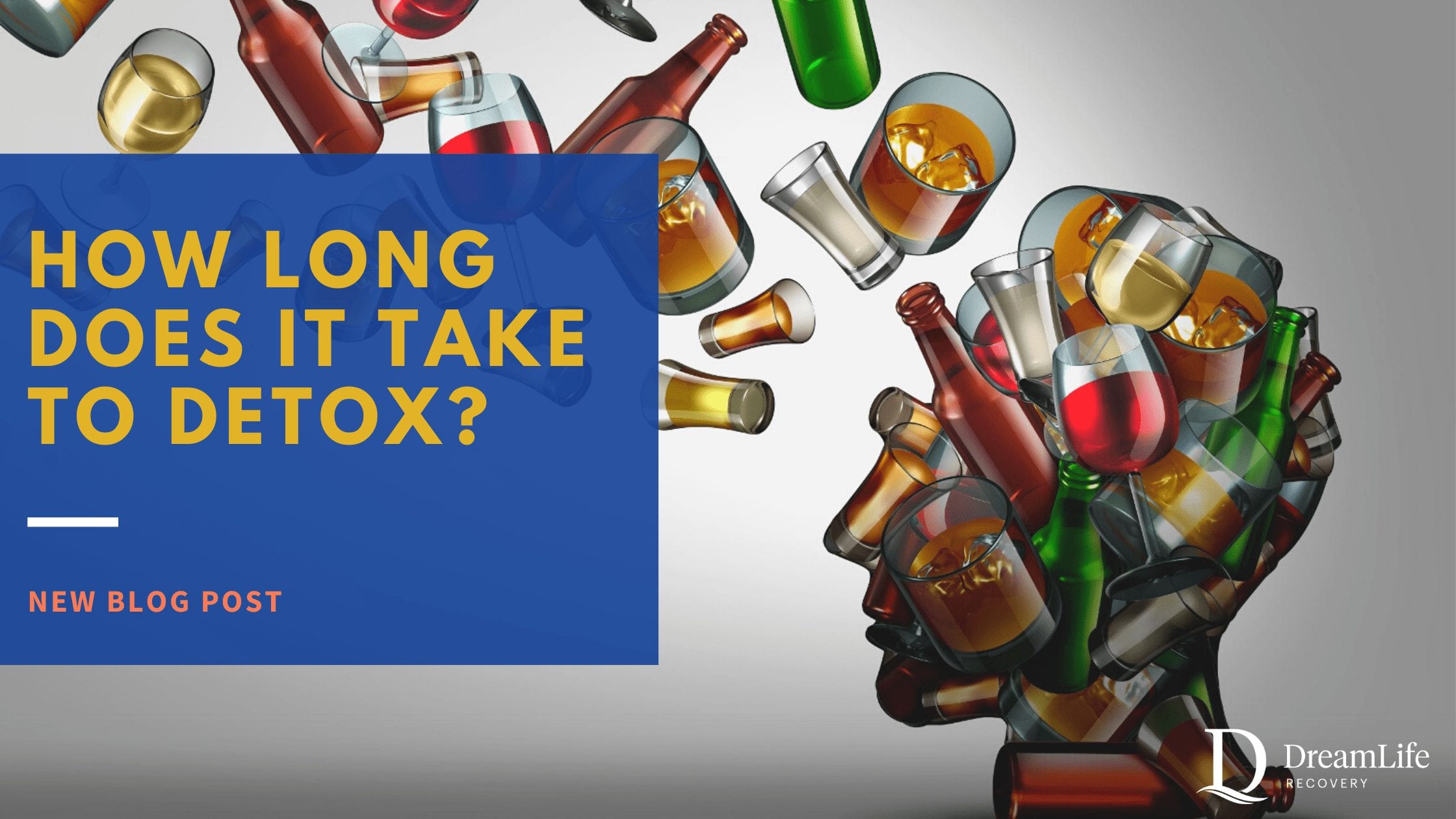How Long Does It Take to Detox?


Written By
DreamLife RecoveryAny substance someone may be addicted may require detoxification, which involves removing addictive substances from the body. You may be asking yourself, “How long does it take to sober up?” and that answer really depends on the individual, the type of substance, and the length of time addicted, medical history, any underlying co-occurring mental health conditions, and if multiple substances were abused. Some may assume a cold shower can help, but detox affects a person’s body and mind and should be overseen by a clinically trained professional. This is the first step in the path to recovery.
The Detox Process
Detoxing from drugs and alcohol involves getting rid of those substances from one’s body and managing any withdrawal symptoms that might appear as a result. The withdrawal symptoms from detoxing can become dangerous in certain situations, which is why it is so important to get the help of a professional recovery center, like DreamLife Recovery. When you enter into a detox program, you will be provided with the necessary guidance and support throughout your process. To curb the intensity of some withdrawal symptoms, medication-assisted treatment can be implemented into a detox program.
How Long Can Detox Take?
While every substance stays in the body for different periods of time, most people can detox within a week. Withdrawal symptoms can set in anywhere from 24 hours to two days after the last substance use. After the first week, many people’s withdrawal symptoms subside and they can move on to other aspects of recovery.
So, how long does it take to sober up?
Alcohol – Alcohol withdrawal symptoms can begin as early as 24 hours since the last drink. Physical and mental symptoms peak within 72 hours and can last up to five days, but the physical symptoms will taper off around one week. After that, an individual may still experience cravings which can be managed through different therapy practices.
Sleeping Pills – Some symptoms can begin within hours and depending on the strength of the pills and level of abuse, symptoms can peak after the first few days. Sometimes withdrawal symptoms can be delayed and might not even set in until one week or more after the last pill.
Benzodiazepines – Mild symptoms can begin within 24 hours to two days with peak symptoms within days three to five. Of course, the severity of symptoms depends on the strength of the dose. Severe withdrawal from benzos can last anywhere between 10 to 14 days.
Hallucinogens – Symptoms can start within 24 hours and most should peak and then taper off within the first week. Mood might be altered until natural levels of dopamine return.
Marijuana – Minor symptoms can last from 24 hours to five days. During the first week, mental symptoms may occur but will subside shortly.
Opioids, Heroin – Withdrawal can begin within just a few hours for heroin and with opioids it depends on how fast-acting the drug is. Symptoms peak in three to five days and after one week, some symptoms may stop but not all. For severe addiction, certain symptoms may persist for months.
Stimulants – Initial withdrawal and physical symptoms begin within 24 hours to two days. After the first two days, mental symptoms set in and can continue for a week or two, with stimulant cravings lasting months.

The process of detoxing can vary, depending on person and substances, with a multitude of potential side effects.
What are the Detox Side Effects?
Each type of substance comes with its own type of withdrawal symptoms. However, many early symptoms include anxiety, insomnia, shaking, muscle pains, sweating, and irritability.
More severe symptoms can include:
- Fever
- Hallucinations
- Seizures
- Heart palpitations
- Nausea
- Diarrhea
- Depression
Often, difficulty concentrating and change in appetite and mood occur. The physical and mental side effects of substance detox can be dangerous.
Other than admitting there is a problem, detox is the first step on the road to recovery. DreamLife Recovery is here to make sure you and your loved ones get there safely. Our medical staff is trained in medication-assisted treatment to help ease withdrawal symptoms and put individuals at ease. Contact our admissions department today to learn more about treatment options.
Sources:






